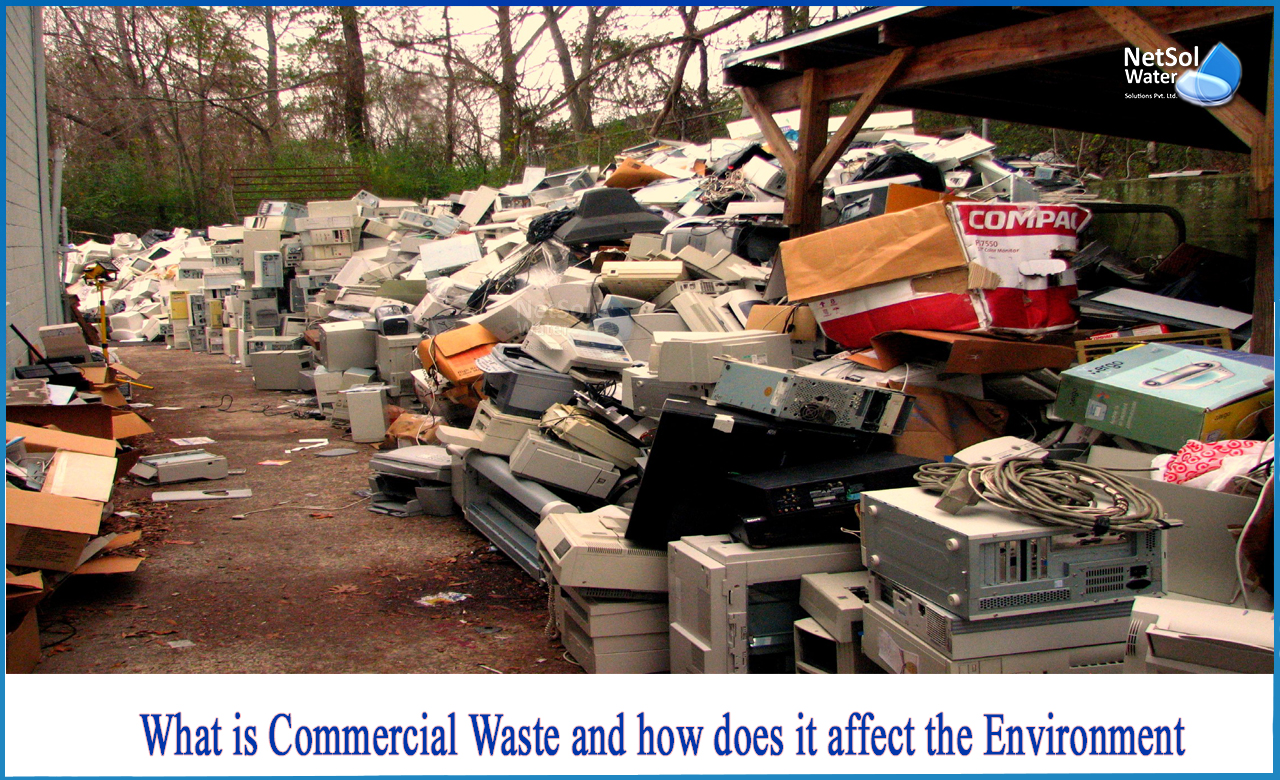What is Commercial waste and how does it affect the environment?
Commercial waste is any waste generated on a business premises. So, whether you run a business, an office, a recreation center, an educational facility, or an entertainment institution, all of the waste created by these establishments is classified as commercial.Construction, agriculture, food, beverages, and demolition debris are also examples of business waste. As a result, it is required by law to be disposed of in a certain manner.
Types of commercial waste
1: Biodegradable wastes
These are waste products that can be broken down into simpler, non-harmful compounds by the action of microbes. Some business sectors, such as schools, malls, and commercial buildings, generate a large amount of biodegradable commercial waste. These wastes may be readily and inexpensively managed.
2: Non-biodegradable wastes
This waste cannot be degraded further by microbes. This type of waste is the primary source of poisons in landfills. It includes chemicals, metals, plastics, paint, and rubber and so on. These materials may be stored in landfills for thousands of years without causing any harm. Toxins from metals and plastics leach into the soil and damage water supplies. Commercial sectors such as offices, malls, and schools generate a significant volume of non-biodegradable commercial waste. These wastes are tough to control and extremely hazardous in nature.
How does commercial waste affect the environment?
-Poor waste management leads to climate change and pollution, as well as having a direct impact on many ecosystems and species.
-Landfills, the waste hierarchy's final resort, emit methane, a strong greenhouse gas connected to climate change. Microorganisms found in landfills produce methane from biodegradable waste such as food, paper, and garden waste. Landfills may potentially pollute soil and water depending on how they are constructed.
The following are some of the effects of commercial waste to the environment:
Contamination of surface water
When waste and chemicals wind up in seas or rivers, they contaminate the water, frequently to the point of changing its chemical make-up. Polluted water may injure animals, plants, and humans, and it can even permeate the soil, inflicting further harm.
Air pollution
Solid and liquid waste isn’t the only type of pollution to be concerned about. Poor waste management may also result in air pollution, which not only harms the environment but can also induce respiratory diseases in humans such as asthma.
Concerns about diseases and hygiene
Improper waste management can pose health risks and increase the possibility of disease outbreaks. When individuals live near poorly managed landfills or disposal sites, or in regions plagued by pollution or inappropriate dumping, the entire community's health might suffer.
Economic loss and management costs
Waste is also an economic loss and a burden on our community. When the 'leftovers' are abandoned, the labour and other inputs (land, energy, etc.) employed in its extraction, production, distribution and consumption stages are also lost. Furthermore, waste management is costly. Building a collection, sorting and recycling infrastructure is expensive, but once in place, recycling may produce cash and create jobs.
Conclusion
Commercial waste that is not properly disposed of can disrupt natural ecosystems, kill wildlife and cause toxic contaminants to enter the atmosphere. Every business is responsible for proper waste disposal, which we, Netsol Water Solutions, the waste management specialists, are delighted to assist with.
If you want to know more about waste management, talk to one of our advisers at Netsol Water. Discover more about waste management practices and how your company can go greener. Contact us at +91-9650608473 or drop a mail at enquiry@netsolwater.com to remain up to date regarding the latest techniques to enhance your waste management.



